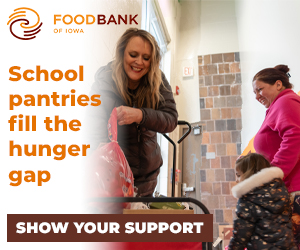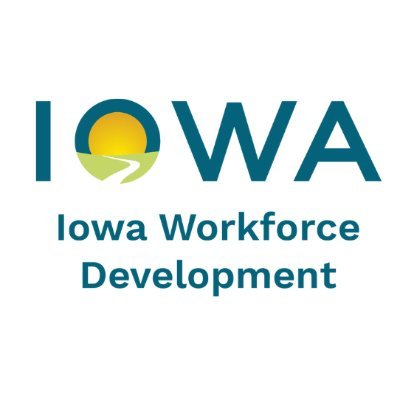Guest opinion: Child care breakdowns more than a family issue

By Kristen Corey | Program planner, Iowa Office on the Status of Women
I woke up recently on a lovely Friday morning thinking what a nice day it was going to be. By 7:10, my daughter and I had left the house with time to go get some breakfast before I took her to her first day camp because school was closed for the day. It was 7:30 a.m. when I pulled up to the building and noticed there were only a few other cars in the parking lot. I walked up to the building and tried numerous doors to get inside, to no avail, and that was when I started to panic.
Where is everyone? I thought. This is the right school, isn’t it? Maybe we’re at the wrong entrance.
I looked at the drop-off instructions again for the fourth time to check the hours, the location of the camp, and the instructions on which door to enter. I then called the program and left a message asking why no one was at the building. Yes, we’re in the right place. There is no way I would have driven to the wrong school, I thought. Since I was now almost late for work, I emailed my supervisor and called the people I was supposed to meet with in the morning to attempt to reschedule.
Then my daughter and I set off to run around the building looking for an entrance. Twice.
On the second frantic lap around the school, I happened to glance over my shoulder and saw the school sign, which did not match the location on the email, and came to the gut-sinking realization that I had taken us to the wrong place. By this time, I was now late for work. Awesome.
As we got back into the car, and I drove the right school, I couldn’t help but laugh to myself. Was this really happening? This was not the relaxing Friday I had planned. I’m sure it was also not in my daughter’s expectations to start the day watching her mother running frenziedly around a school she didn’t go to, hair flying everywhere, muttering things to herself like, “Where is everyone?” And, “This can’t be happening right now.” But alas, that is how our day started, and it all turned out OK. We eventually got to the right place — later than I had hoped, but we arrived.
As I drove to work, I thought back on all the times we’ve had similar situations happen on the way to work, mostly because of child care. I remembered the time when I had just returned from maternity leave with my first child and had already exhausted all of my FMLA-covered time off. I showed up to drop my child off to her in-home day care at 7 a.m. only to be told that day care would be closed that day because several children were sick. I sat outside in my car calling everyone I could think of who could possibly take care of my daughter so that I could go to work. When I could not find anyone to take care of my child that day, I then called my supervisor at the time and begged for extra unpaid time off. Thankfully, even though I was no longer covered by FMLA, my supervisor allowed me to take the extra unpaid time off.
Over the next several weeks, that happened three more times. Each time, we scrambled as a family to find coverage. Most days we weren’t able to find anyone to cover for us.
My mind also traveled back to last summer when my children’s day care center flooded. We took the kids to the center in the morning, only to show up and see that no lights were on. That was when we learned it would be closed indefinitely due to extensive damage from flooding and we had to find somewhere for them to go. We called family. I called friends. Who could help us? We ended up taking the time off until the center reopened.
Too often, parents and families find themselves in these situations all over the United States. A2018 report from Child Care Aware puts this into perspective, finding that:
- Over a six-month period, 45% of parents are absent from work at least once due to child care breakdowns (e.g., provider is sick or closed, child is sick and unable to go to child care), missing an average of 4.3 days.
- 65% of parents’ work schedules are affected by child care challenges, an average of 7.5 times over a six-month period.
- An estimated $28.9 billion in wages is lost annually by working families who do not have access to affordable child care and paid family and medical leave.
- U.S. businesses lose approximately $4.4 billion annually due to employee absenteeism as a result of child care breakdowns.
Our experience is just one in a sea of many varied situations, but thankfully we both had access to paid and unpaid leave. But what if we hadn’t? Would our jobs have been at risk?
Paid leave, workplace flexibility and reliable, high-quality, affordable child care are three ways that businesses can support the workers who add to their bottom line. Child care is not only a family issue. It’s very much a business issue.
Kristen Corey leads the Office on the Status of Women at the Iowa Department of Human Rights. However, this article is her own opinion, and may not represent the opinions of the state of Iowa. Corey received a master’s degree in sociology and sustainable agriculture from Iowa State University, where she started her career as an academic researcher for Iowa State University Extension and Outreach. She later worked for the Iowa Department of Human Services and then moved to her current position to follow her passion for working with and for women and girls. She and her husband have two children and are constantly renegotiating roles as working parents.









